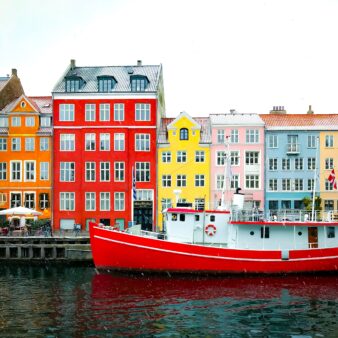Lessons from Denmark
Brussels —Expanded polystyrene (EPS) is widely used in Denmark. Not only because of the country’s long tradition of fishing and aquaculture, but also because of EPS’s use in the medical and construction sectors–we all know how cold it gets in Denmark. It has had to develop several ways to recycle and re-use its EPS over the past years, and Denmark’s recycling numbers just keep on improving.
One of the major users of EPS in Denmark is the fishing industry. The country, surrounded by the sea on two sides, has more than 600 fishing ports registered, and it is one of the world’s largest importers and exporters of fish and fish products. A large variety of seafood products needs to be kept fresh enough for local consumption and, at the same time, be protected during transportation within Denmark and for export. That’s where EPS, with its excellent thermal insulation and hygienic properties, comes in.
In the past, these fish boxes were usually treated like garbage, and most would go to landfills or incinerators. But now, more and more thoughtful fish traders have installed EPS recycling machines to handle fish boxes all over the country.
Generally speaking, the main function of the EPS foam recycling machine is to make the large volume of EPS foam smaller. An example that is getting a lot of traction in the country is the GREENMAX EPS compactor offered by INTCO Recycling; a cheap and effective recycling machine. If all fish traders installed a machine like this one, EPS recycling in the country would skyrocket.
Given how widely EPS is used in the country, the Danish government has recently stepped in and boosted the collection of EPS in Danish municipalities, with Haderslev, in southern Denmark, among the most recent additions to the list. The total number is now 38 municipalities all over the country. These municipalities cover waste management for more than 46% of Danes. A further 20 municipalities have announced that they seek to collect EPS, and are now in the process of establishing collection schemes for EPS recycling. Some 70% of Danes should now be able to recycle their EPS. You can see a map of the municipalities here.
These two direct actions by the fishing industry and the government show us ways to improve the collection and recycling of EPS all over the continent. EPS recycling machines could be installed in fish markets and in the storerooms of fish traders. At the same time, it is clear that the development of municipal pick-up services of EPS is key to its recycling. EU authorities should encourage both.
